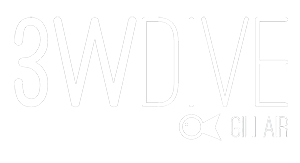by Megan Whitehead
What could be better than a couple of ice cold beers after a full day of diving? Whichever tropical location you choose to do your Divemaster Internship, you’ll probably experience a culture and environment that will regularly mix partying and diving. After an intensive day of diving and education in your Divemaster program, there isn’t much that sounds better than going for sunset and letting loose. It’s very easy to enjoy a few drinks in these great party scenes. The chance to meet people from all around the world, experiment with the temptations of night life, enjoy all kinds of music from electronic to acoustic… How could life get any better?!
Scuba diving is often considered a relaxing, recreational sport. It’s all sun tans, scuba and social. It is true, the diving community is some of the most laid back and chillaxed people that you’ll ever meet. We enjoy lazy sunsets and many enjoy good parties as part of the island life. However, there is a reason that the adage “first drink, last dive” exists. Scuba diving and partying may sound like a nice combination; the reality is much different.
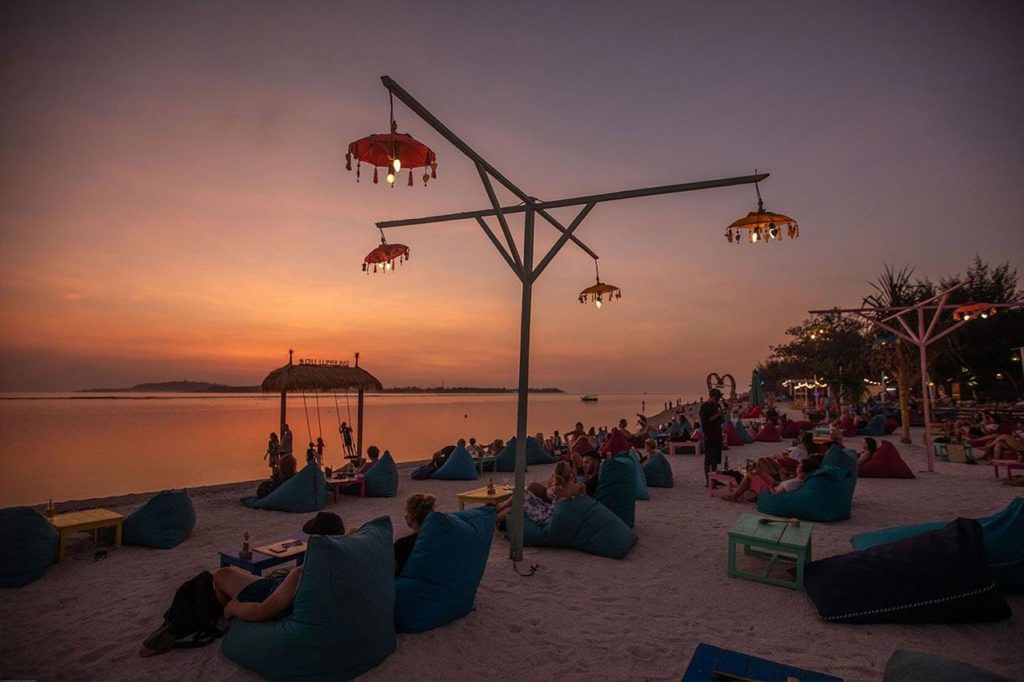
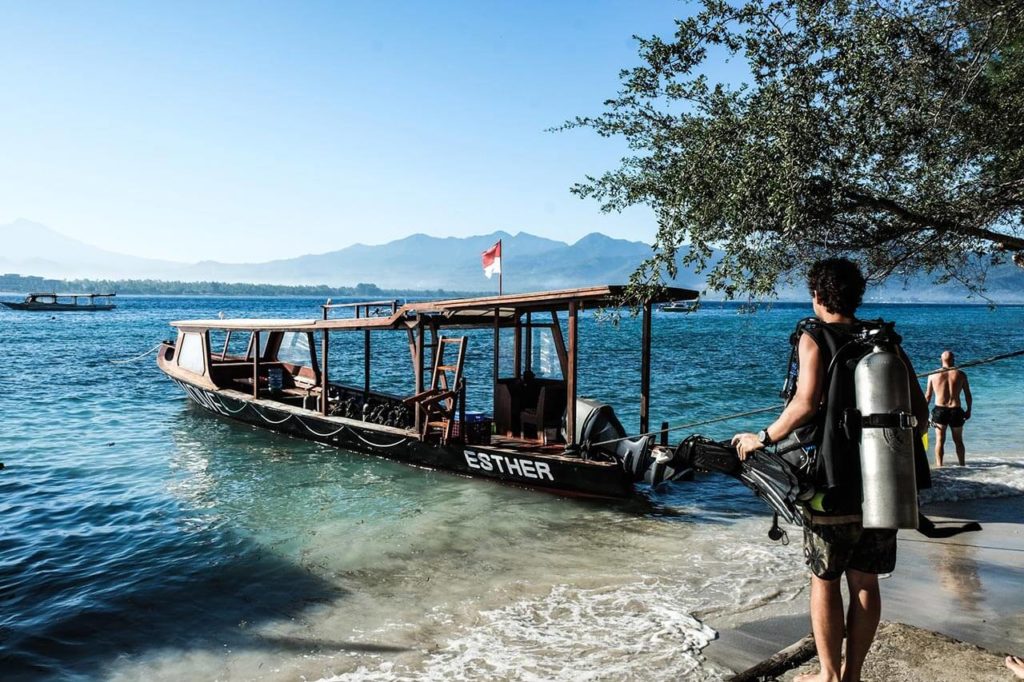
Diving and drinking during your divemaster internship
In your Divemaster internship, you will experience many chilled out, easy days; just diving and having fun. Other days, more often than not, you will be physically and mentally pushed. Swimming in strong current, carrying tanks and scuba gear around, having long surface intervals in rough conditions, trying to learn all that you can about scuba diving while simultaneously attempting to put it into practice. It isn’t just above the water that demands heavy, mental strain either. You must learn to focus on multiple factors at the same time, both for yourself and also other divers. Situations both underwater as well as on the surface can escalate very quickly.
We dive to experience a world that is not our own. The wonder and majesty of the underwater world is what calls to us. It also demands a certain amount of respect and humbleness. The ocean and weather can be at peace one moment, then start roaring the next. A diver could panic, or gear could malfunction. All of this to say that scuba diving at a Divemaster level is a deceptively strenuous sport. But isn’t that why you’re going to do your divemaster? To get a better understanding and experience about this sport and underwater world that we all love so much.
Now think about mornings where you are hungover, from any substance. There are head and body aches, maybe lethargy or sluggishness, dehydration, and increased chances to experience decompression sickness. One of the biggest ways that alcohol affects people is that it compresses our central nervous system. Basically, this refers to when our judgement is impaired and our reaction time slows down. Often when we are under the influence, we’re unaware of these impairments. You could put it in a way that alcohol or drugs have a similar effect on us that nitrogen narcosis does. A reversible change in consciousness that could cause short-term memory loss, poor judgement, a sense of euphoria, trouble concentrating, and reduced nerve and muscle function. We already have a possibility of experiencing this underwater without being under the influence. It doesn’t take a research study to show you why alcohol and diving is a bad mix, but we’re going to use one anyway.
The Dangers of Diving Under the Influence or Hungover
In a study published in the Journal of Studies on Alcohol and Drugs1 conducted by Perrine, Mundt and Weiner, they break down the effects of alcohol and drugs on our bodies in a hyperbaric environment. In addition to asking other professionals and referencing other studies, they also took a group of highly experienced divers, gave them varying amounts of alcohol, and then observed them as those divers performed different activities while diving in a pool.
Their research showed that one’s ability to process information diminishes, particularly in tasks that require undivided attention for many hours, after the blood alcohol level has reached 0.015%. That’s hardly even a single beer!
Alcohol consumption also affects our blood pressure, as blood vessels that supply our muscles constrict in response to a heightened blood alcohol level. This could be particularly dangerous for divers who are already at risk of heart disease. It could be a contributing factor to diving fatalities that occur as a result of heart attack.
Alcohol consumption also affects our blood pressure, as blood vessels that supply our muscles constrict in response to a heightened blood alcohol level. This could be particularly dangerous for divers who are already at risk of heart disease. It could be a contributing factor to diving fatalities that occur as a result of heart attack.
The effects of alcohol are compounded when diving because of the way that nitrogen affects our bodies at depth. Nitrogen, like alcohol, is a sedative. This is why the symptoms of nitrogen narcosis so closely mimic those of being a bit buzzed or drunk. The effects of nitrogen and alcohol are cumulative. What this means is that having one drink on the surface could have the same effect as two, three, or four drinks depending on the depth of your dive.
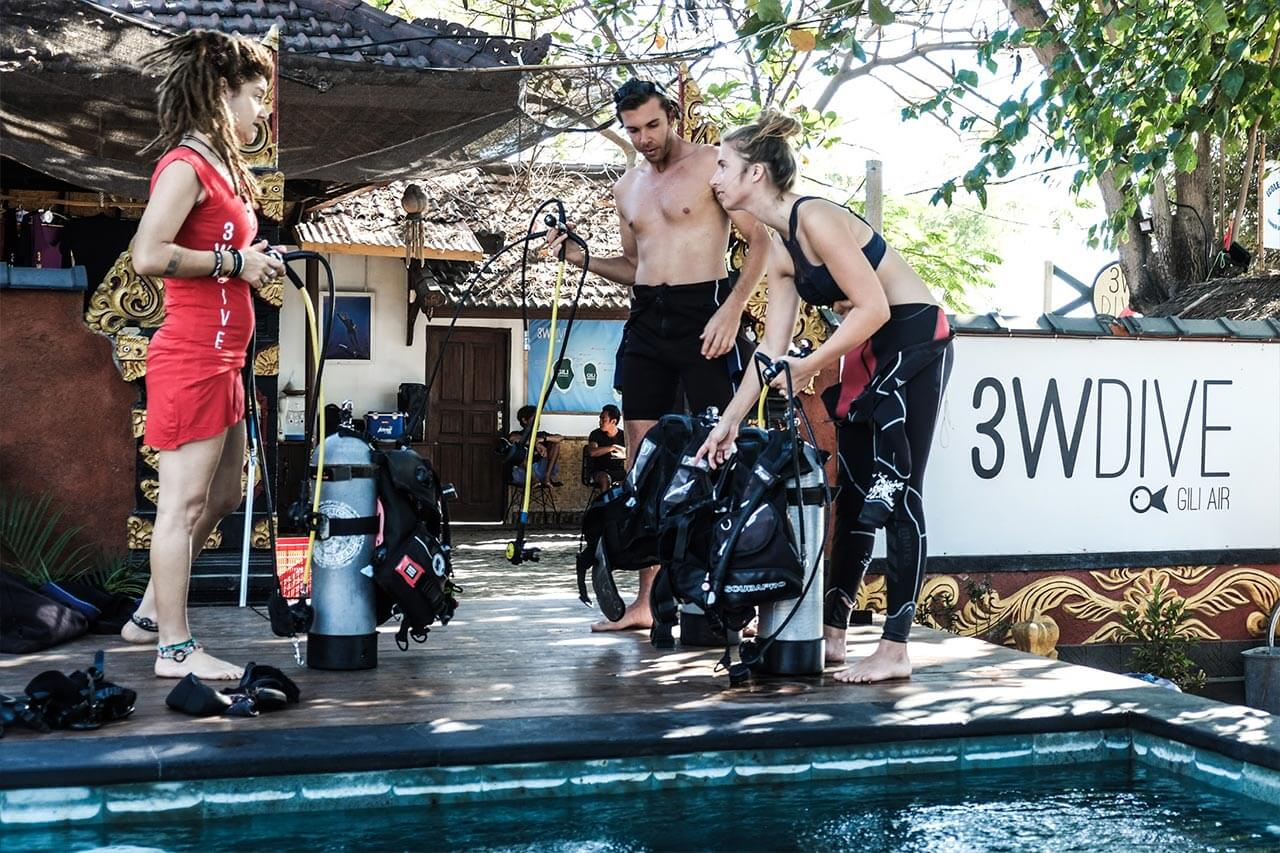
There have been questions before about how drinking alcohol could increase your chances for more serious dive injuries, like decompression sickness (DCS). There has never been any conclusive answer to this question, nor extensive research done, but many DCS accident reports show that the diver had a few drinks and a lack of sleep the night before. There is plenty of theoretical evidence that suggests that consuming alcohol, even the night before diving, can increase the likelihood of harmful nitrogen bubbles forming in the bloodstream. The expansion of your blood vessels and increased blood flow due to having a few drinks can lead to faster nitrogen absorption than the rate of dive table or dive computer can track. Even if you stick to your no-decompression limit, you could still put yourself at a higher risk of contracting DCS. Whether or not you can fully feel the effects of drinking the next morning, it has been proven that alcohol can stay in the bloodstream for up to eight hours after consumption. Therefore, even drinking the night before diving will lead to a higher state of dehydration underwater. The biggest potential consequence of this being an increased risk of DCS.
There have also been numerous studies on the effects of diving under the influence of illicit substances. You are all very intelligent (hence why you’re here and reading this article), so we don’t feel the need to go into a lot of the dangers. We will just leave it as a strong suggestion to NOT dive while under the influence of anything that affects your mental or physical abilities.
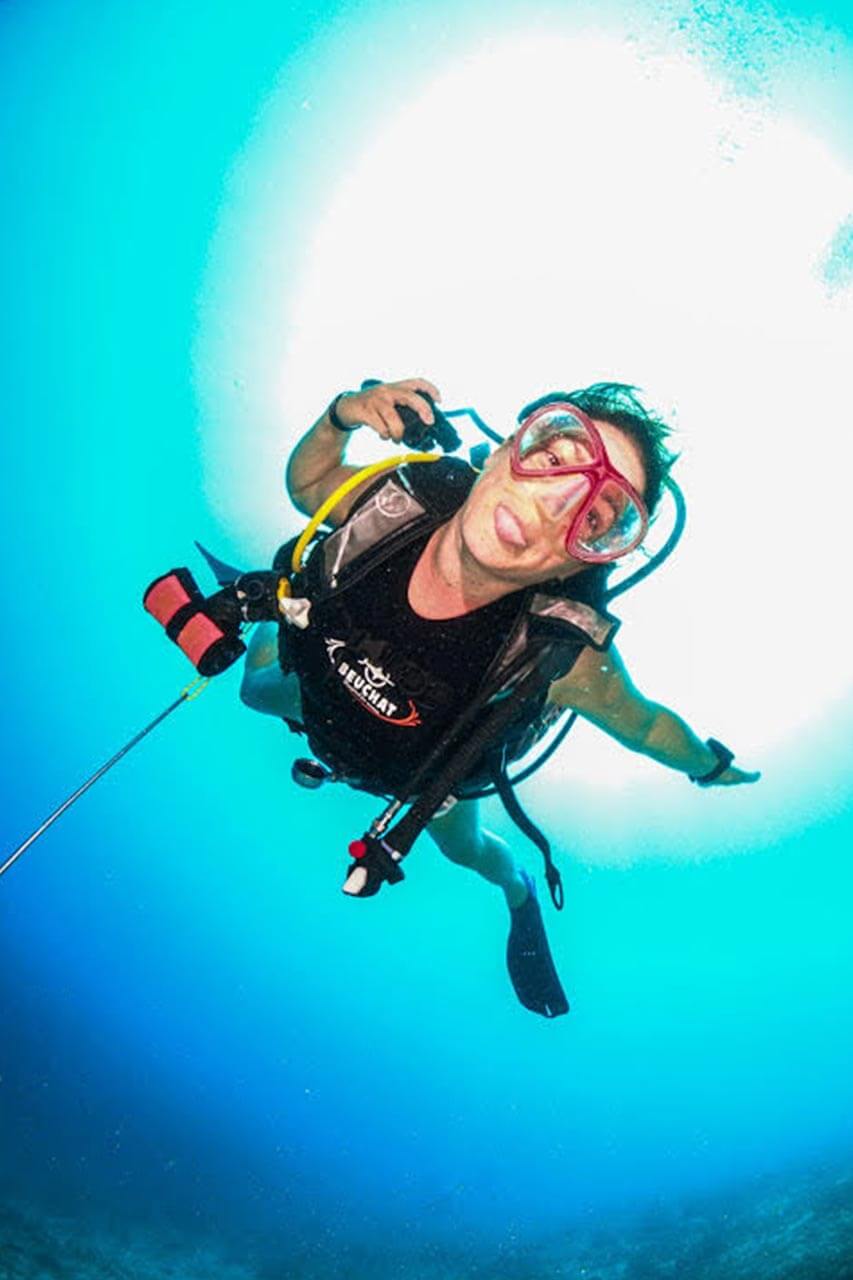
Scuba and alcohol – it comes down to finding a balance
During a divemaster training we’re all tempted to go out and celebrate an epic day of diving. To share with others what we experienced, discovered, and felt. This happens quite often considering that we feel like we’re on vacation. Or when doing a rather intensive divemaster program you feel the need for a release or relaxation. That is not a bad thing! But better to do it when you can have a full day of proper rest so as not to impair the rest of your diving experiences while doing your divemaster Internship.
Sobriety is a very small expense when you consider all of the potential consequences that you can have when diving under the influence. It’s important to remember that even if you feel fine after a night out under the coconut trees and one too many drinks, you don’t always recognize the effects that substances have on you. Stay safe, stay smart, stay humble and stay rad, divers!
Sobriety is a very small expense when you consider all of the potential consequences that you can have when diving under the influence. It’s important to remember that even if you feel fine after a night out under the coconut trees and one too many drinks, you don’t always recognize the effects that substances have on you. Stay safe, stay smart, stay humble and stay rad, divers!
CITATION
1. Pace, Tamsin & Mifsud, Janet & Cali-Corleo, Ramiro & Fenech, Anthony & Ellul-Micallef, Roger. (2005). Medication, recreational drugs and diving: a review of the effects of drugs in the hyperbaric environment. Malta Medical Journal. 17. 9-15.
1. Pace, Tamsin & Mifsud, Janet & Cali-Corleo, Ramiro & Fenech, Anthony & Ellul-Micallef, Roger. (2005). Medication, recreational drugs and diving: a review of the effects of drugs in the hyperbaric environment. Malta Medical Journal. 17. 9-15.
